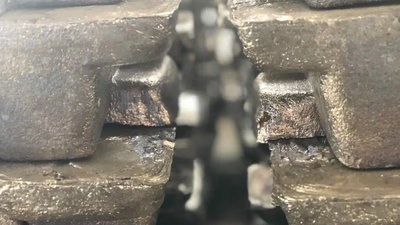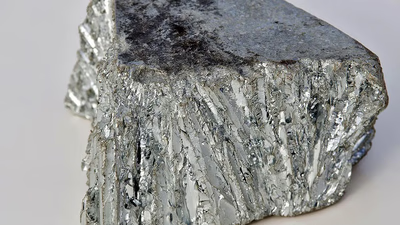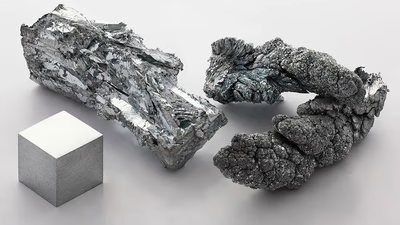
Zinc"s role in health: immunity, growth, and metabolism. "
Zinc is a cofactor for numerous enzymes involved in various biochemical reactions in the body. These enzymes are critical for processes such as DNA synthesis, protein synthesis, cell division, and metabolism. Zinc helps regulate these enzymatic reactions, facilitating proper cellular function and overall metabolism. Zinc is crucial for a healthy immune system. It helps in the development and functioning of immune cells, such as neutrophils, natural killer cells, and T-lymphocytes. Zinc plays a vital role in immune response, helping the body combat infections and diseases. It also supports wound healing and tissue repair.
Zinc is essential for proper growth and development, particularly during childhood and adolescence. It is involved in DNA synthesis and cell division, which are crucial for growth and tissue repair. Adequate zinc intake is necessary for normal physical and sexual maturation, as well as for maintaining healthy skin, hair, and nails. Zinc is involved in protein synthesis, which is necessary for building and repairing tissues in the body. It plays a role in the synthesis of collagen, a structural protein important for healthy skin, bones, and connective tissues. Zinc also aids in the production of enzymes and hormones that regulate various bodily functions.
Many researchers are constantly finding plans to support it. Let's learn a little more about the applications of zinc metal. Research shows that zinc plays a promising role in improving intestinal abnormalities. In recent animal studies, researchers found that mental deficiency alters the diversity and accumulation of microbes in the gut. This information could have new applications for examining intestinal bacterial conditions. Zinc is also useful for patients with digestive problems such as acid reflux and irritable bowel syndrome. Intestinal problems are prevalent in communities, and a trained nutritionist should be consulted to evaluate the effects of nutrition on gastrointestinal health.
People with zinc deficiency are more prone to pathogens and infections. Zinc metal reduces cell inflammation, protects immune system lymphocytes (white blood cells), and prevents cellular oxidation. Research into this popular notion that zinc can reduce the risk of colds has been promising but has yet to be conclusive. It is better to use cold candies and breast syrups and avoid breathing sprays and gels because they cause a loss of sense of smell.
Researchers do not know exactly how zinc protects fertility, but what is clear is the importance of this mineral: there is a direct relationship between the number of sperm in men and the amount of zinc in the sperm, in other words, men who have less sperm have less zinc in them. Their sperm is found. Zinc can also increase testosterone levels, which stimulates sperm, and appears to protect eggs and sperm from oxidative stress and inflammation.
Research has shown that adequate zinc in pregnant women reduces the risk of preterm birth by 14% and that women who go to the hospital for preterm birth have lower zinc concentrations in their blood than those who give birth on time. Zinc is needed during pregnancy to regulate chromosomal structures and gene formation, and the placenta in a woman's uterus needs zinc to regulate fetal cells.
About 6% of the zinc stored in your body is found in the outer layer of the skin and its underlying layers and plays an important role in the normal growth of the skin and wound healing. Zinc deficiency often causes skin disorders. Researchers have found that patients with acne, psoriasis, and other skin conditions, despite normal levels of zinc in the tissues, are deficient in zinc in their dermis and epidermis. Also, other research shows that dietary zinc is effective in treating inflammatory acne.
While physicians have been directly linked to depression and zinc deficiency since the 1950s, a recent study found that almost one-third of all patients with depression and half of the patients with other mental disorders also have a zinc deficiency. Researchers are paying close attention to the effect of zinc concentration on the hippocampus (the center of mood and memory control in the brain). Because zinc increases its anti-inflammatory and immune properties, some believe it can protect the hippocampus from the effects of excessive stress and oxidation.
Zinc is involved in the function of taste and smell receptors. It helps maintain the sensitivity of taste buds and olfactory receptors, enabling the perception of flavors and aromas. Zinc deficiency can lead to a diminished sense of taste and smell, affecting appetite and food enjoyment. Zinc acts as an antioxidant and helps protect cells from oxidative stress caused by free radicals. It supports the body's antioxidant defense system by activating antioxidant enzymes and reducing oxidative damage to cells and tissues. Zinc is essential for reproductive health in both males and females. In males, zinc is involved in sperm production, maturation, and motility. In females, it plays a role in the development and release of eggs, as well as in the hormonal regulation of the menstrual cycle.
-

Asia plays a crucial role in the global zinc ingot market, with countries like China, India, South Korea, and Japan being significant importers. Despite being the largest producer, China imports zinc to meet its extensive industrial and construction demands. India relies on imports to support its growing infrastructure needs, while South Korea and Japan utilize zinc in their manufacturing sectors, including automotive and electronics. Understanding the types of zinc ingots—such as pure zinc and various purity levels—is essential for buyers. Zinc ingots are cost-effective and widely used across industries for their anti-corrosion properties. Buyers should connect with reputable sellers to get insights on pricing based on purity and intended use. Major exporters include China, South Korea, Kazakhstan, Uzbekistan, and Iran, which supply both regional and international markets. The demand for zinc ingots continues to rise due to their diverse applications in construction, transportation, and electronics.
-

West Asia possesses significant, yet underutilized, zinc deposits primarily in Iran and Turkey. The region"s rapid urbanization and infrastructure development are driving demand for zinc-coated materials, particularly galvanized steel. Key mining operations include the Angouran Mine in Iran, known for its rich zinc deposits, and the Mehdiabad Mine, which is undergoing modernization to enhance production capabilities. The Sohar Zinc Smelter in Oman stands out as a major facility producing high-grade zinc ingots using advanced technology. Additionally, the Kayseri Mine in Turkey supplies ore to a modern smelting facility for both domestic use and export. European markets have shown strong interest in Middle Eastern zinc products, with significant export opportunities emerging. The adoption of modern mining techniques can improve efficiency and reduce environmental impacts while supporting economic diversification beyond oil and gas. As industries such as automotive manufacturing and electronics grow, so does the demand for zinc components. West Asia"s strategic location near major consuming markets offers logistical advantages for trade expansion.
-

West Asia heavily relies on imports to meet its zinc needs, with major importers including Iran, Turkey, Saudi Arabia, and the UAE. The construction and infrastructure sectors significantly drive the demand for zinc, particularly for galvanized steel used in various projects. Iran stands out as a key player in the region"s zinc market, possessing some of the richest zinc mines globally. The country ranks third in world zinc reserves and is actively involved in both production and exportation. Despite its rich resources, Iran"s production levels are not aligned with global demands, leading to anticipated increases in global zinc prices over the next few years. Zinc is widely utilized across multiple industries such as automotive, electrical equipment manufacturing, and agriculture. Its importance extends to healthcare through its use in pharmaceuticals and dietary supplements. As awareness of zinc"s benefits grows, so does its application across various sectors in West Asia. "
-

Zinc is primarily used in galvanizing, which protects steel and iron from corrosion, making it essential in construction, automotive manufacturing, and infrastructure. It serves as an alloying element with metals like copper to create brass, widely utilized in musical instruments and plumbing. Zinc alloys are favored in die casting due to their favorable melting points. Beyond industrial applications, zinc is crucial for human health, found in pharmaceuticals and dietary supplements that support immune function and wound healing. Zinc oxide is a key ingredient in sunscreens and cosmetics for UV protection. The metal also plays a role in battery production, with zinc-carbon batteries powering portable devices and zinc-air batteries used in hearing aids. In agriculture, zinc sulfate acts as a fertilizer and feed supplement. Its versatility extends to roofing materials due to its durability and aesthetic qualities. The automotive sector relies on zinc for various components, including car bodies and engine parts, while electrical equipment benefits from its conductivity and resistance to corrosion.
-

Zinc is a corrosion-resistant metal that protects other metals through a sacrificial coating of zinc oxide or carbonate. Its malleability allows it to be shaped into sheets and wires, while its high melting point of 419°C makes it suitable for high-temperature applications. Zinc"s electrical conductivity, though lower than copper or aluminum, enables its use as a protective coating on steel structures. It is commonly alloyed with other metals, notably in brass, enhancing properties for various applications including marine components and musical instruments. The primary sources of zinc are ores like zinc blende and calamine, with major mining operations in China, Australia, and Peru. Over 11 million tonnes are produced annually, primarily for galvanizing steel to prevent corrosion in construction and automotive sectors. Zinc also plays a role in batteries as an anode and is used in numerous alloys to improve strength and resistance to corrosion. Additionally, zinc compounds serve various industrial purposes such as catalysts and pigments, while zinc oxide finds applications in sunscreens due to its UV-blocking properties.
As an essential mineral for human health, zinc supports immune function and enzymatic reactions. "
-

The zinc industry in West Asia, particularly in Iran and Turkey, shows significant potential for growth. Iran is focusing on expanding its production capacity and reducing imports by investing in mining and processing infrastructure. The Angouran Mine is a key asset for Iran, while Turkey"s Kayseri Mine and modern smelters cater to both domestic and export markets. The region benefits from substantial zinc reserves, strategic geographical positioning, and increasing infrastructure development. However, challenges persist, including government policy volatility, export duties discrepancies, and a shortage of essential materials like sulfuric acid. Oman is emerging as a regional hub with the Sohar Zinc Smelter utilizing advanced technology to boost production. Other Middle Eastern countries have smaller operations or rely heavily on imports. Overall, while the zinc industry has commendable growth prospects, it requires modernization and investment to fully realize its potential. "
-

Shaanxi, Hunan, and Yunnan are key zinc-producing regions in China, hosting numerous mines and smelters that significantly contribute to the country"s zinc export capabilities. The Middle East, particularly Iran and Turkey, also plays a vital role in the global zinc market. Iran"s Angouran Mine is one of its largest, while Turkey"s Kayseri mine supports both domestic and export needs. Oman contributes with its Sohar Zinc Smelter. The strategic location of these regions reduces transportation costs for exporters and enhances their appeal in international markets. Zinc is widely used due to its properties such as ductility and corrosion resistance, making it essential for various industries. The recycling potential of zinc further boosts its demand across domestic and foreign markets. As a result, the Middle East has emerged as a significant hub for zinc ingot production, meeting both local industry needs and global market demands. "
-

Zinc is a vital mineral that serves multiple roles in human health, acting as a cofactor for numerous enzymes essential for DNA and protein synthesis, cell division, and metabolism. It is crucial for a robust immune system, aiding in the development of immune cells and enhancing the body"s ability to combat infections. Zinc also supports wound healing and tissue repair, making it essential during growth phases in childhood and adolescence. Furthermore, it plays a significant role in reproductive health by influencing sperm production in males and egg development in females. Research indicates that zinc may improve gut health by addressing intestinal abnormalities and digestive issues. Additionally, zinc"s antioxidant properties help protect cells from oxidative stress, while its involvement in taste and smell receptors underscores its importance in appetite regulation. Deficiencies can lead to various health issues, including skin disorders and mental health challenges. Overall, maintaining adequate zinc levels is crucial for overall well-being.
-

Zinc is a bluish-white metal known for its lustrous appearance and relatively low density, making it lighter than metals like iron and copper. With a melting point of approximately 419°C and a boiling point of about 907°C, zinc is easy to melt and cast into various shapes. It ranks 2. 5 on the Mohs scale of hardness, indicating it is relatively soft, ductile, and malleable. Zinc reacts moderately with acids but does not react with water at room temperature. Commonly used as an alloying agent, zinc forms alloys such as brass and zinc-aluminum combinations that enhance strength and casting characteristics. Despite its weak tensile strength compared to carbon steel, zinc"s flexibility increases when alloyed. Its moderate conductivity makes it suitable for galvanizing processes and alkaline batteries.
Zinc"s applications span multiple industries including automotive, construction, health, and cosmetics due to its corrosion resistance and non-toxic nature. Various purity grades of zinc ingots are produced for different applications, contributing to its export as a significant commodity in global trade.
-

The zinc industry is poised for growth, driven by demand from construction, automotive, and electronics sectors. Its corrosion-resistant properties make zinc essential for galvanizing steel, which is increasingly used in infrastructure projects across West Asia. As urbanization accelerates in emerging economies, the need for zinc-coated materials will rise significantly. The adoption of electric vehicles (EVs) and renewable energy technologies is also expected to boost zinc demand, as it plays a crucial role in battery production and solar power installations. However, the industry faces challenges such as price volatility influenced by global economic conditions and geopolitical tensions. Environmental regulations are pushing producers to adopt cleaner technologies and improve sustainability practices. Innovations in mining and processing are enhancing efficiency and reducing costs, while ongoing research aims to expand zinc applications. The future of the zinc market will depend on monitoring these trends and technological advancements, as well as the exploration of new deposits.
In West Asia, production capacity is substantial but contingent on the availability of quality raw materials. Current price forecasts suggest fluctuations between $3,200 and $3,800 per ton this year. Overall economic growth in the Middle East will likely increase zinc consumption as countries diversify their economies.










